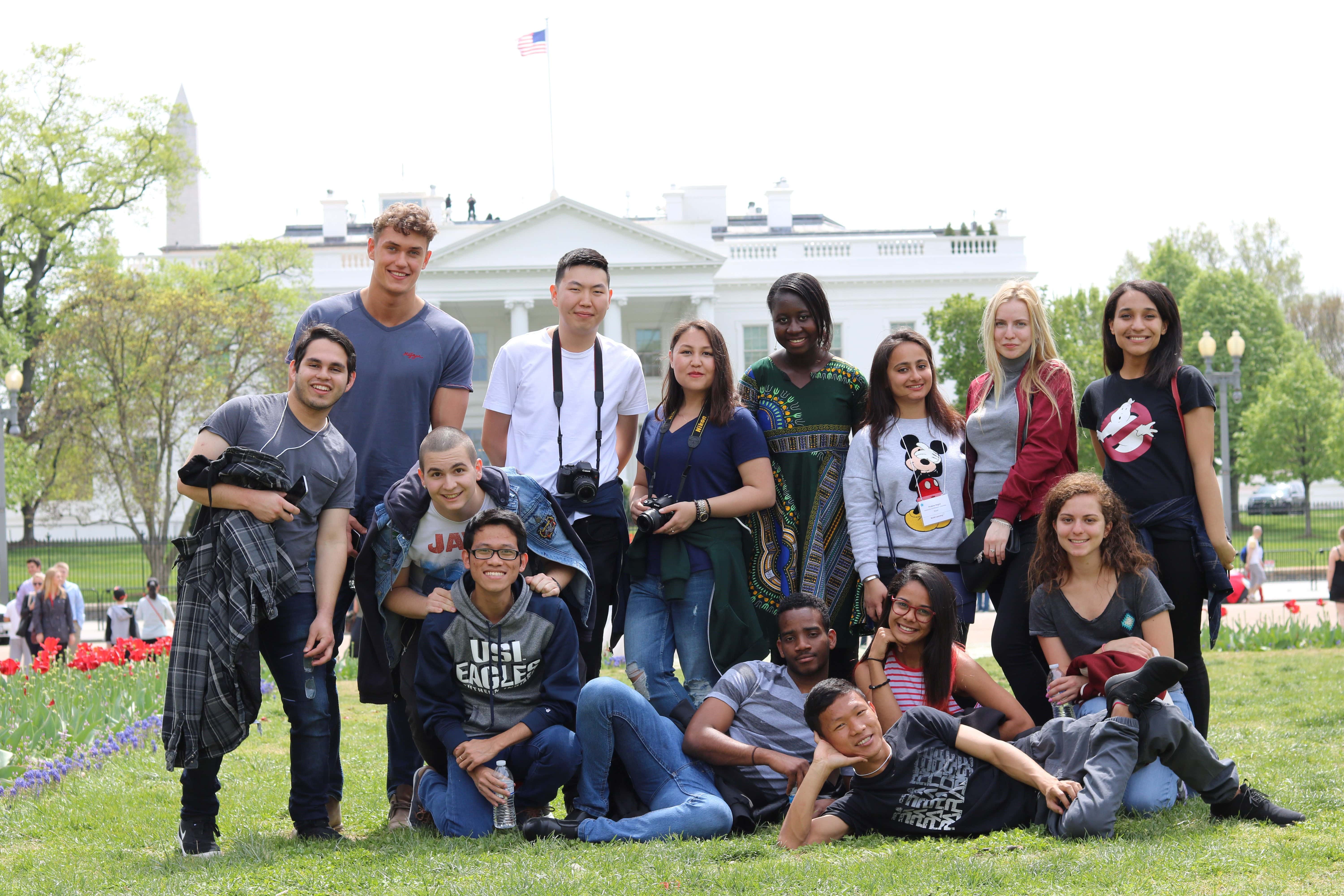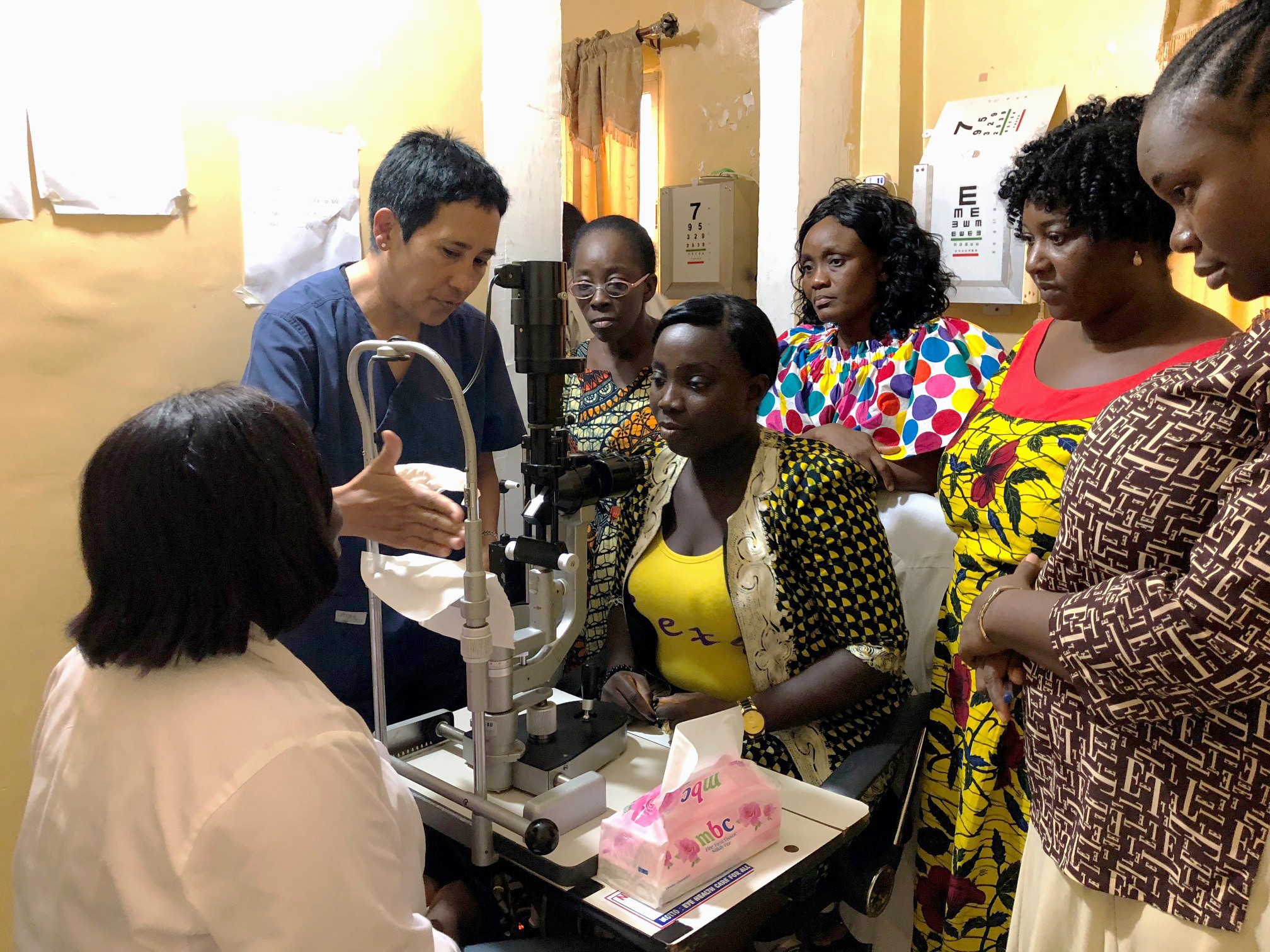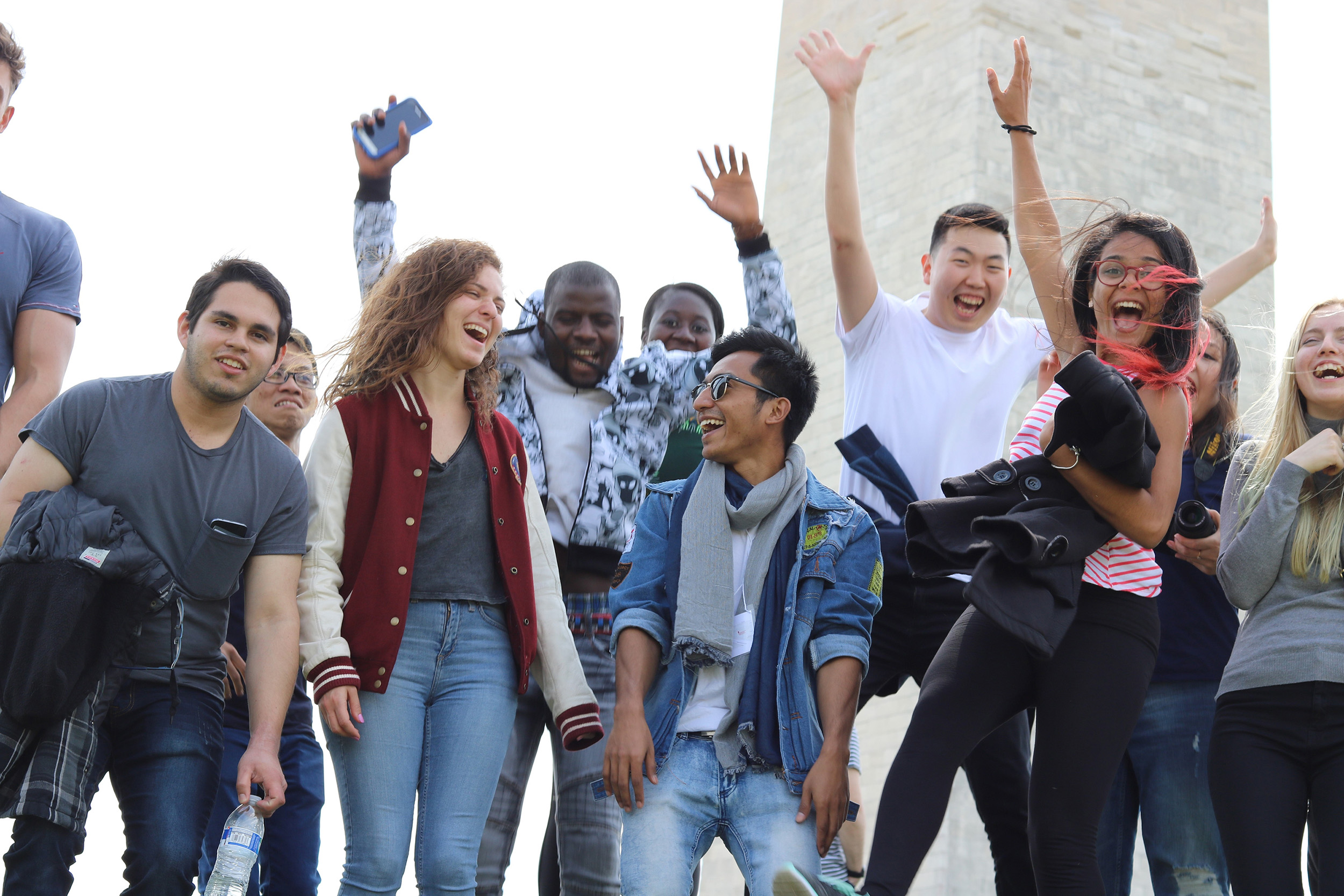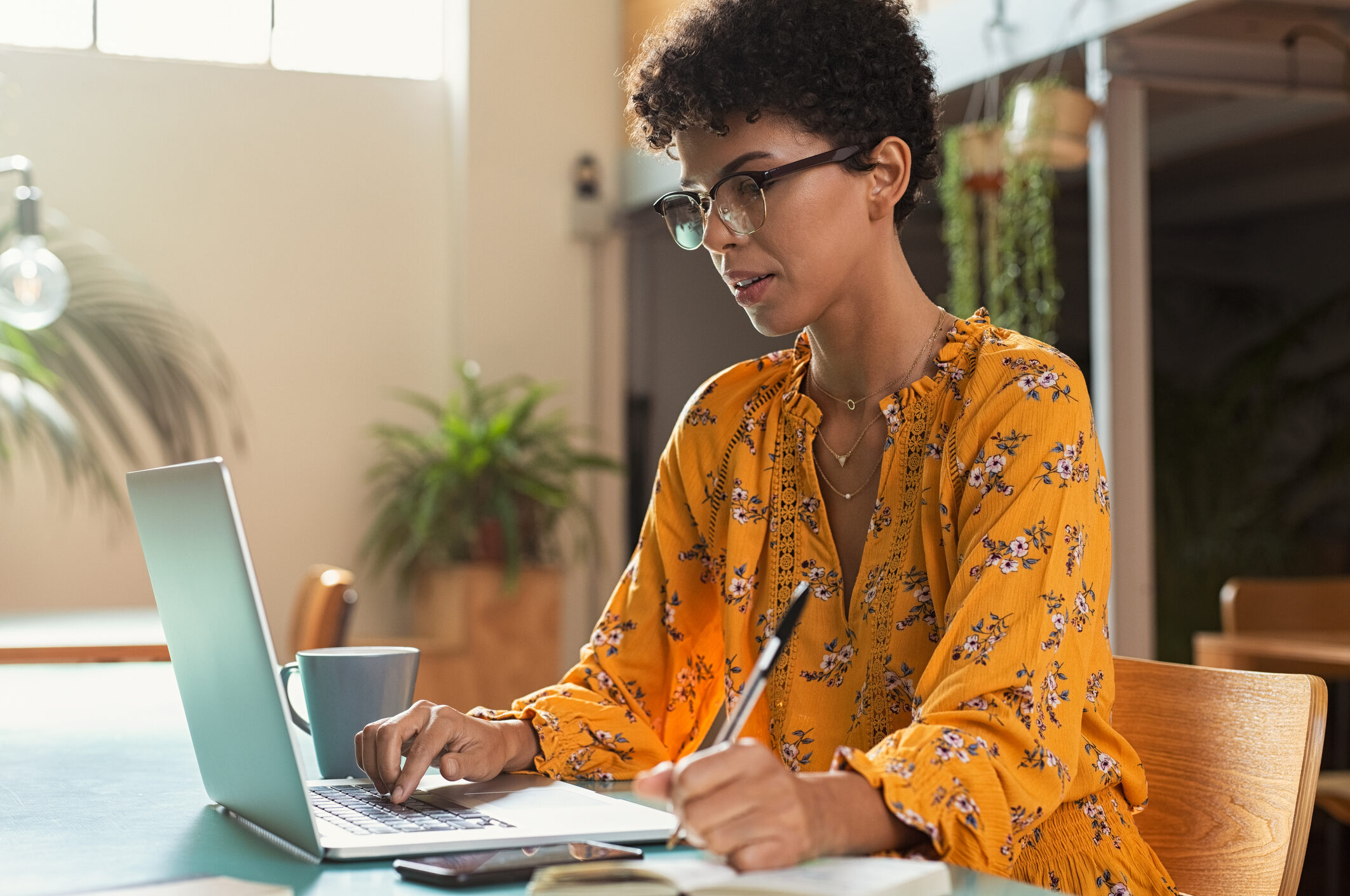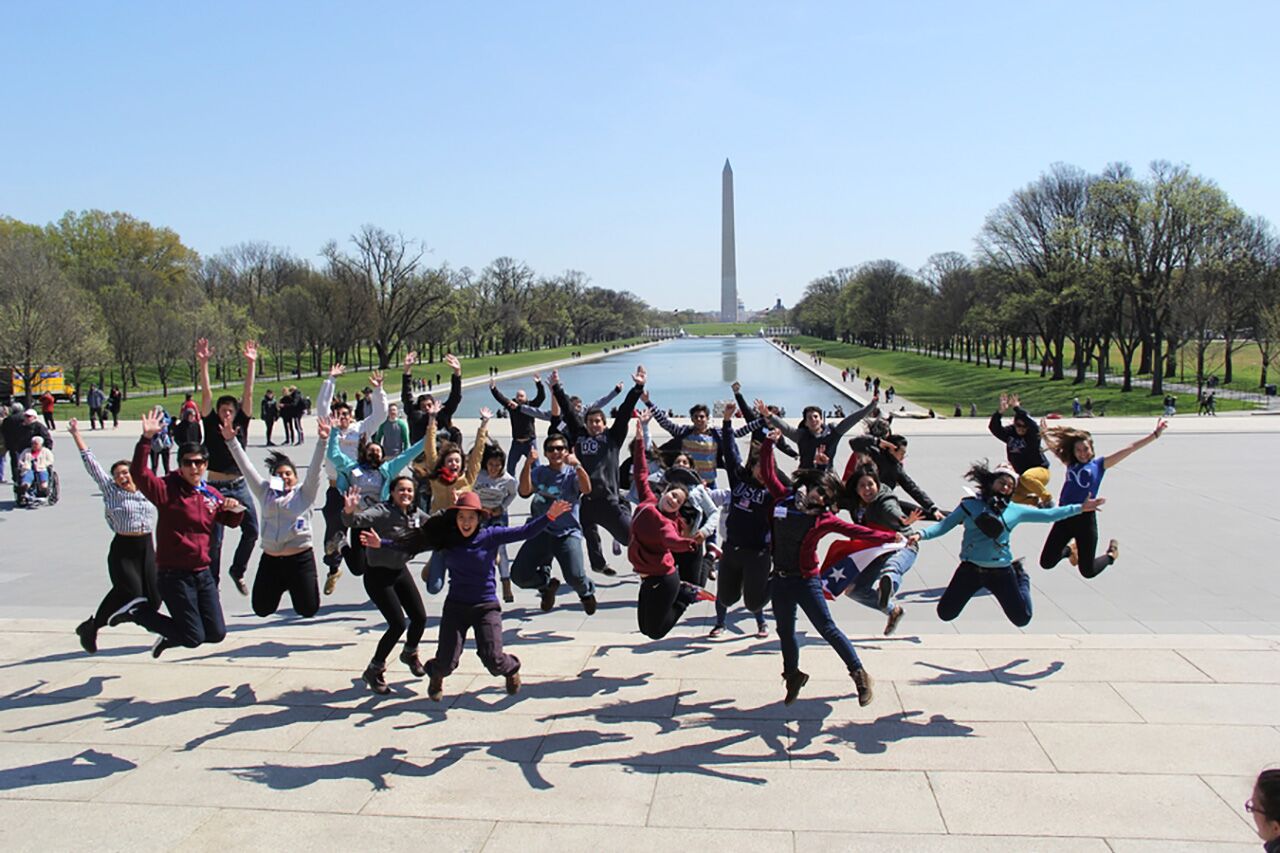-
What We Do
- WHERE WE WORK
-
About Us
 Welcome Message from Carol Jenkins
Welcome Message from Carol JenkinsFor more than 90 years, World Learning has equipped individuals and institutions to address the world’s most pressing problems. We believe that, working together with our partners, we can change this world for the better.
On my travels, I’ve had the opportunity to meet with many of those who have joined us in this mission. In Baghdad, we’ve trained more than 2,300 Iraqi youth who are already giving back at home. In London, our partners in the TAAP Initiative strongly believe that we are all responsible to practice inclusion. And in Vermont, our Experiment in International Living and School for International Training participants prove every day that they have the tools and the determination to change the world.
Please join us in our pursuit of a more peaceful and just world.
- Get Involved
Country: Paraguay
How a Partnership Formed Through the Fulbright Specialist Program is Tackling Substance Use Disorders in the U.S. and Paraguay
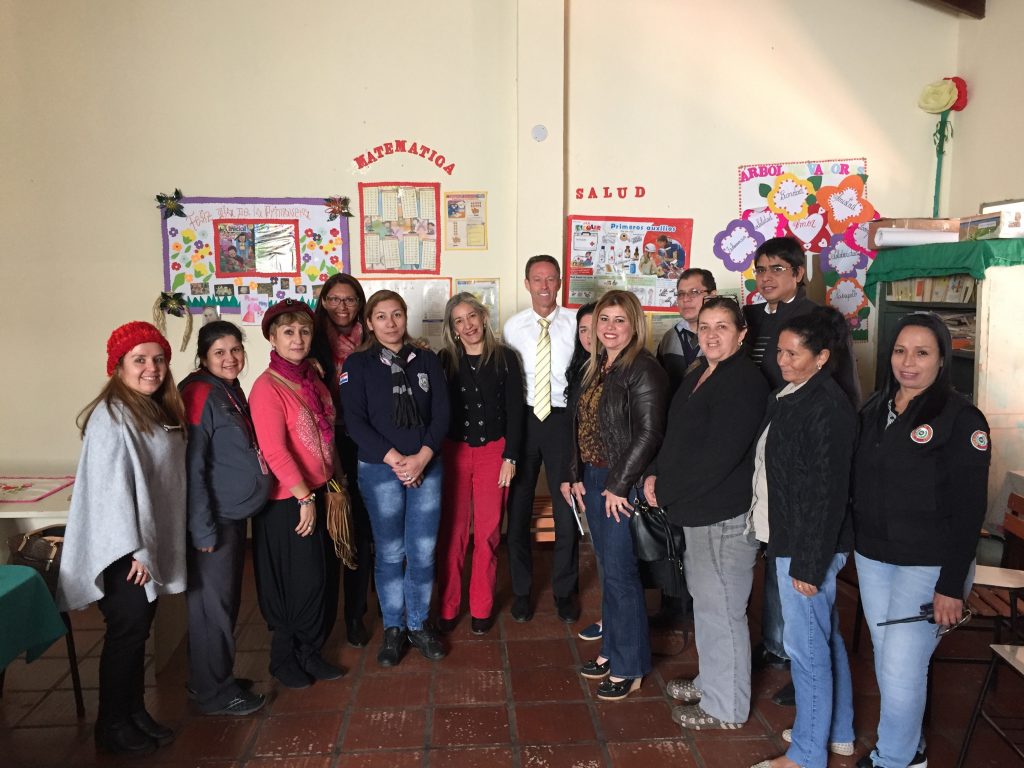
When the Universidad Católica (UC) “Nuestra Señora de la Asunción” in Paraguay decided to expand its class offerings, the Director of UC’s Psychology Department Dr. Diana Lesme Romero saw an opportunity to include a concentration in substance use disorders.
As a former drug counselor for a local NGO, Lesme Romero understood that mental health professionals around the country would benefit from specialized coursework in addressing this problem.
“It was not a topic being discussed at the academic level,” she explains, adding, “there wasn’t a single course in the field at the university level.”
She attended a conference organized by the International Center for Credentialing and Education of Addiction Professionals (ICCE) and the U.S. Department of State’s Bureau of International Narcotics and Law Enforcement Affairs (INL).
Attendees from around the world met to discuss the development of undergraduate and graduate addiction studies programs, incorporating the Universal Treatment Curriculum (UTC) and similar standardized evidence-based training materials.
There she met Dr. Roger Peters, a professor at University of South Florida’s (USF) Department of Mental Health Law and Policy, a licensed psychologist, and expert in substance use disorders who also serves as director of the UTC Coordinating Center for North American Universities.
Lesme Romero knew he was the perfect person to help her bring high-quality academic training in drug addiction studies to Paraguay.
Through Peters, a candidate on the Fulbright Specialist Program Roster, Lesme Romero learned that she could submit a proposal to bring him to Paraguay to advise, lecture, and offer training.
“As in many countries, there aren’t advanced training programs for addiction treatment professionals in Paraguay,” explains Peters, who believes using the UTC, a model implemented successfully in other countries, is an important step.
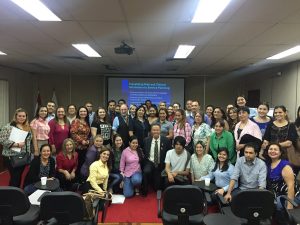
Peters admits he didn’t know much about Paraguay — a landlocked South American country moving from decades of isolation and dictatorship to civilian leadership and democratic transition — but was excited to work in a place that was rebuilding itself.
“It seemed like a great opportunity to work with someone like-minded who had already done so much with few resources.”
During his three-week visit, Peters held meetings with faculty about using UTC in academic programs, best practices for training and mentorship, and potential opportunities for exchange between UC and USF.
He also delivered over a dozen workshops, training sessions and presentations for addiction treatment staff at the National Addictions Control Center, National Anti-Drug Secretariat, National Psychiatric Hospital, as well as residential youth treatment centers.
As a result, local staff gained an understanding of evidence-based treatment practices for addiction. They also improved screening and assessment protocols and learned about designing studies of treatment outcomes.
Says Peters: “I was impressed by the commitment of colleagues in Paraguay to embrace new ideas to enhance programmatic services and to build more comprehensive systems of care for persons who have mental and substance disorders.”
He also introduced the UTC to academics and mental health professionals working in the field of addiction, which had been largely unavailable in Paraguay and South America. Now, there are three universities in Asunción using UTC.
Peters’ shared his expertise in substance abuse prevention through radio and television interviews at the Secretaria Nacional Antidrogas de Paraguay — Paraguay’s equivalent of the U.S. Drug Enforcement Administration — and met with top officials there.
The Fulbright Specialist Program helped Peters and Lesme Romero solidify their partnership. After working together, Peters encouraged Lesme Romero to join the Board of Directors for the International Consortium of Universities for Drug Demand Reduction (ICUDDR), a network of universities engaged in training, research, outreach, and advocacy around the treatment and prevention of substance use disorders. Peters currently serves as its Vice President.
This summer, the two connected again in-person for the 4th annual ICUDDR conference.
They will soon collaborate on research examining treatment needs and alternatives to incarceration among substance-involved women in the justice systems in both Paraguay and the United States.
Through a University Nexus Initiative (UNI) Award from the University of South Florida, Peters’ and Lesme Romero’s teams will investigate the need for substance abuse treatment among incarcerated women in both countries and identify strategies for diverting them to community-based treatment programs.
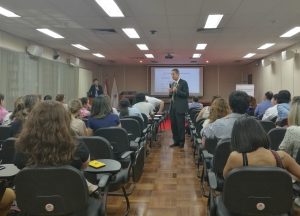
“It is very expensive to incarcerate non-dangerous female prisoners who could be treated more effectively in community-based settings, where there are a range of treatment-based options available, and where they can remain as productive citizens via employment and involvement with family, church, and other prosocial activities,” says Peters.
The project will also provide technical assistance to correctional authorities in both countries that will help identify strategies for diverting female prisoners to community treatment programs.
Upon completing their research, Peters and Lesme Romero plan to share their findings through colloquia and develop a new course called “Substance Abuse and the Justice System.”
Lesme Romero says hosting a Fulbright Specialist was personally and professionally rewarding.
The program not only provided an opportunity to reconnect with colleagues doing addiction prevention work, but widened her network of professional contacts in Paraguay and internationally.
Building on Peters’ visit, she has been working to increase the number of students familiar with the UTC and offered the first-ever Training of Trainers at UC.
“We now have 11 accredited trainers, who are teaching courses at the university level,” she says.
For his part, Peters says his Fulbright experience equipped him with new insights and connections with academics and drug enforcement officials, enabling him to expand his research. He will return in March 2020 for fieldwork with Lesme Romero and her team.
Back at USF, Peters has been able to incorporate examples of how evidence-based treatment practices can be implemented in a developing country context into student modules on international approaches to addiction treatment. Peters draws on his observations as a Specialist to discuss the nuances and challenges countries like Paraguay may face, such as limited opportunities for training and a lack of Spanish-language resource materials.
Peters also says the Fulbright experience and growing collaboration has much broader implications.
“Reducing drug demand in other countries has an impact on preventing export of illicit drugs, and could reduce the inflow of drugs to the United States,” he explains.
The Fulbright Specialist Program was established in 2001 by the U.S. Department of State and the Bureau of Educational and Cultural Affairs (ECA) to enable U.S. professionals and scholars to work on short-term projects overseas in conjunction with local host institutions.
For more information about the Fulbright Specialist Program or to apply, please go to: https://fulbrightspecialist.worldlearning.org/the-fulbright-specialist-program/
Paraguay
Fulbright Specialist Program
What?
Link U.S. Experts and International Institutions
A program of the U.S. Department of State, Bureau of Educational and Cultural Affairs, the Fulbright Specialist Program is a unique opportunity for U.S. academics and established professionals to engage in two- to six-week consultancies at host institutions across the globe. Host institutions, including universities, non-profits, and other organizations, develop and submit projects for approval by the U.S. Embassy or Fulbright Commission in their country in wide-ranging academic and professional fields that build capacity and promote long-lasting linkages between individuals and institutions in the U.S. and abroad.
Why?
Address Priorities and Build Institutional Capacity at Institutions Around the World
An important companion to the traditional Fulbright Scholar Program, the Fulbright Specialist Program differs by providing short-term exchange experiences that tackle discrete, sometimes rapid response, projects. The Fulbright Specialist Program encourages participation of both university faculty and highly experienced non-academics, including legal experts, business professionals, public health practitioners, scientists, IT professionals, artists, and journalists. The program is a mutually beneficial opportunity for the Specialist who may not be available to leave their position for an extended period of time and the host institution which needs an experienced partner to jointly tackle a problem or examine an issue on a short-term basis.
How?
Become a Fulbright Specialist: Apply to Join the Roster
Fulbright Specialists are a diverse group of highly experienced, well-established faculty members and professionals who represent a wide variety of academic disciplines and professions. In order to be eligible to serve as a Fulbright Specialist, candidates must have significant experience in their respective professional field and be a U.S. citizen at time of application. Eligible disciplines and professional fields supported by the Fulbright Specialist Program are listed below.
- Agriculture
- American Studies
- Anthropology
- Archeology
- Biology Education
- Business Administration
- Chemistry Education
- Communications and Journalism
- Computer Science and Information Technology
- Economics
- Education
- Engineering Education
- Environmental Science
- Law
- Library Science
- Math Education
- Peace and Conflict Resolution Studies
- Physics Education
- Political Science
- Public Administration
- Public/Global Health
- Social Work
- Sociology
- Urban Planning
Interested candidates can find more information about the Fulbright Specialist Program and apply to serve as a Specialist at fulbrightspecialist.worldlearning.org. Candidates who meet all eligibility requirements will have their full applications reviewed by a panel of their professional peers. Candidates who are approved by the peer review panels will then join the Fulbright Specialist Roster. Individuals remain on the Specialist Roster for a three-year term and are eligible to be matched with a host institution’s project abroad during that tenure.
The following costs are covered for those Fulbright Specialists who are matched to a project: international and domestic airfare, ground transportation, visa fees, lodging, meals, and incidentals. A daily honorarium is also provided.
Become a Host: Bring a Fulbright Specialist to Your Institution
The Fulbright Specialist Program allows universities, cultural centers, non-governmental organizations, and other institutions abroad to host a leading U.S. academic or professional to work on diverse, short-term collaborative projects where the Specialist conducts activities which may include, but are not limited to:
- Delivering a seminar or workshop
- Consulting on faculty or workforce development
- Developing academic or training curricula and materials
- Lecturing at the graduate or undergraduate level
- Conducting needs assessments or evaluations for a program or institution
Institutions interested in hosting a Fulbright Specialist should contact their local Fulbright Commission or U.S. Embassy for country-specific requirements and deadlines.
Contact information for all participating countries is available on the fulbrightspecialist.worldlearning.org website.
For more information or questions about the Fulbright Specialist Program, please email [email protected].
The Fulbright Specialist Program is a program of the U.S. Department of State with funding provided by the U.S. government and administered by World Learning.
Global Undergraduate Exchange Program
For highlights from the Global UGRAD Program, visit our newsletter, the Global Gazette.
Global UGRAD
Online Professional English Network Program (OPEN Program)
Youth Ambassadors Program
In-Person Youth Ambassadors Programs:
Three-week, Youth Ambassadors programs commence in various locations across the United States, including San Francisco, CA; Washington, DC; or in Brattleboro, VT. Participants then travel in smaller cohorts to host communities across the country. All inbound programs include a segment in Washington, DC.
The U.S. Youth Ambassadors exchanges follow a similar program cycle, beginning with a U.S.-based pre-departure orientation, followed by international travel to the exchange country. Three-week, single, and multi-country exchanges take place between June – August; exact dates will vary by exchange country.
The Adult Mentor Role:
The Adult Mentor, or Adult Educator, role is an important part of the Youth Ambassadors Program. These adult program participants support the development of group cohesion and community among program participants; assist youth participants in cultural exploration; engage youth participants in learning and help connect their experiences to their Community-Based Service Initiatives; and continue mentorship development following the virtual or in-person exchange by supporting youth participant project implementation. Youth Ambassadors Adult Educators will:
- Facilitate participants’ progress on program activities. This may include supporting Youth Ambassadors Program staff with check-ins on individual participants’ progress; and providing insights, guidance, and encouragement on participants’ assignments and discussions.
- Build the capacity of participants. A key role of the adult educators is to build the capacity of youth participants by enabling them to solve issues or problems as they arise. Youth Ambassadors Program staff do not expect adult educators to solve problems, but rather to empower students to solve their issues/problems themselves.
- Serve as a resource. Adult Educators will serve as a resource for the student teams by sharing their technical expertise, organizational experience, professional networks, and life experience. In other words, if youth participants have questions and are in need of resources to get to the next level, adult educators should point them in the right direction, based on their experience and connections. Following the program, Adult Educators will support youth participants as they implement their community projects. Adult Educators will be available for questions and guidance as participants need.
- Act as a cultural bridge. Adult Educators serve as a “cultural bridge” if youth participants have difficulty understanding each other or any part of the program.
Connect with Youth Ambassadors
- Tumblr Link: http://wlyap.tumblr.com/
- Youth Team Instagram: https://www.instagram.com/youthambassadorsexchange/
- Youth Team Facebook: https://www.facebook.com/YouthAmbassadorsExchange
Contact Us
Questions? Contact our Admissions Office at [email protected] or at 1-877-591-9626 inside the U.S. or at 1-802-258-3485 outside the U.S.




